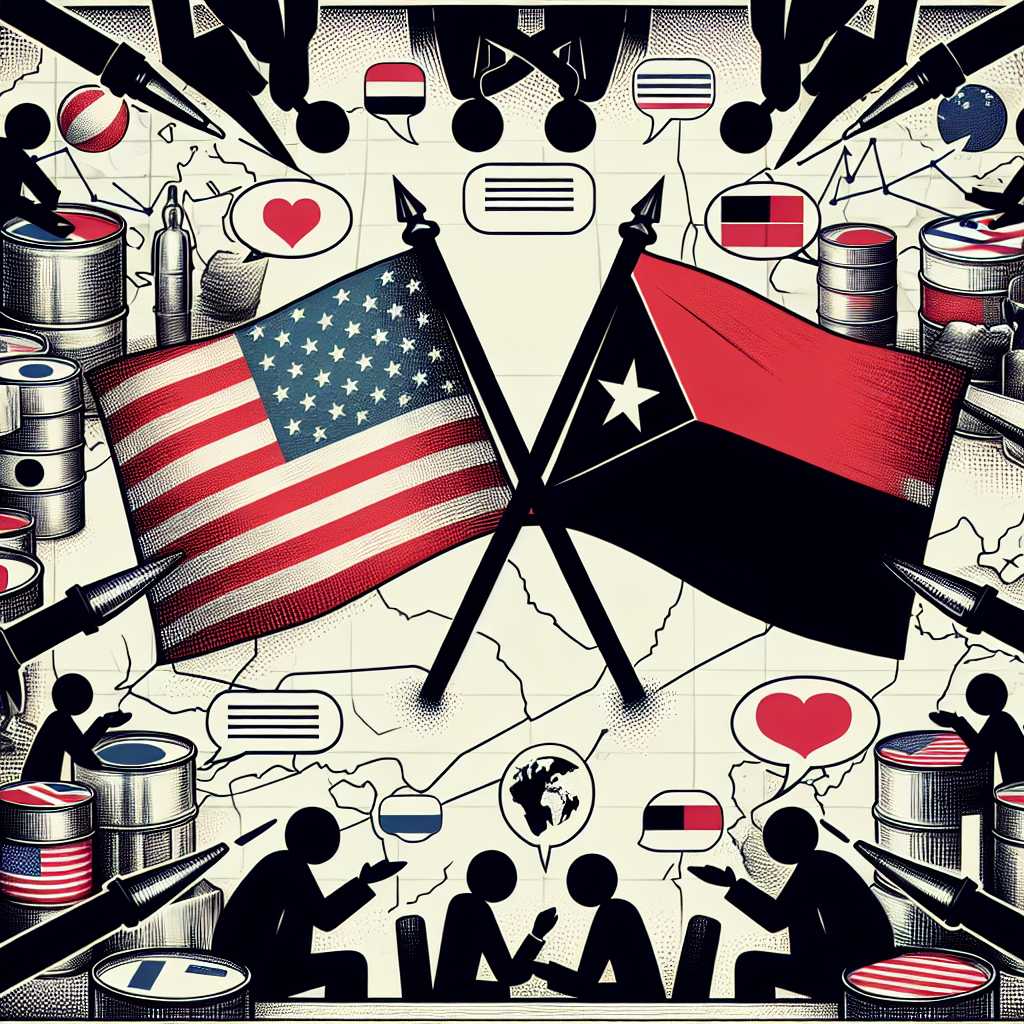The Complex Relationship Between the United States and Venezuela: Historical Context and Current Dynamics
The relationship between the United States and Venezuela has been historically complex, punctuated by periods of cooperation as well as tension and confrontation. Both countries have had significant economic, political, and geopolitical interactions that highly influence their bilateral relations.
Historical Background and Economic Interactions
From the 20th Century onwards, Venezuela’s vast oil reserves molded its relationship with the United States, as American companies played a major role in the development of the Venezuelan oil industry. For decades, U.S. dependence on foreign oil made Venezuela one of its most critical trade partners in Latin America.
Political Dynamics Through The Years
Diplomatic relations have historically ebbed and flowed influenced by changes in government, economic ties, and international politics. The United States backed democratic transitions in Venezuela in the latter part of the 20th Century but found itself at odds with Hugo Chavez’s administration (1999-2013) which brought about a shift towards socialism and anti-American rhetoric.
Following Chavez’s death in 2013 and the subsequent election of his successor, Nicolas Maduro, relations continued to deteriorate as the U.S. criticized what it saw as a move away from democratic norms. The U.S.’ stance further hardened following Maduro’s re-election in 2018, which was viewed by much of the international community, including the U.S., as fraudulent.
Sanctions and Diplomatic Confrontations
In response to the ongoing political crisis in Venezuela, marked by institutional breakdowns and humanitarian emergencies, the United States has imposed a series of economic sanctions targeting Venezuelan state assets and officials. The goal of these sanctions is often publicly declared as an attempt to pressure the Venezuelan government back toward democratic processes and away from human rights abuses.
Attempts at Dialogue and Policy Shifts
Despite heated rhetoric, there have been multiple attempts over the years at dialogue between the United States and Venezuelan administrations. However, efforts at rapprochement often face setbacks due to deep-seated mistrust on both sides.
Impacts on Citizens and Bilateral Effects
The political standoffs between governments do not only impact diplomacy but also the people of both nations. Migration from Venezuela to the United States has increased due to economic hardship and political instability in Venezuela. Sanctions have been controversial due to their economic impact on regular Venezuelans while also seeking to coerce political change.
Current State of Affairs
Recently, diplomatic shifts point towards a pragmatic engagement approach by the U.S., especially concerning Venezuela’s oil exports amidst global energy demands. This scenario results from ever-changing geopolitical dynamics, including U.S. relations with other oil-producing nations.
Notes
Image Description An image showing a small-scale map representing US-Venezuela relations could depict both countries’ national flags—possibly crossed over or facing each other—that would emblemize their engagement over time amongst a background indicating political or economic themes such as symbols for oil barrels or diplomatic dialogue.
OYvdq

